The Body In The Library, by Agatha Christie
>> Tuesday, December 11, 2012
TITLE: The Body In The Library
AUTHOR: Agatha Christie
COPYRIGHT: 1942
PAGES: 224
PUBLISHER: William Morrow
SETTING: 1940s England
TYPE: Mystery
SERIES: Miss Marple. This is an early one.
Colonel and Mrs. Bantry wake up one morning to the news that there's a body in their library. It's a platinum blonde unknown to both of them, dressed in an evening dress, and she has been strangled. Afraid that if the culprit is not discovered soon, her husband will be the victim of a trial by rumour, Dolly Bantry's first response is to call Miss Marple, who's recently earned quite a reputation for her sleuthing.“Those quiet ones are often the worst. Jane Marple says so.”
Dolly Bantry wakes in her beautiful home in the quiet village of St Mary Mead; everything is perfect until the shocking discovery of a body in the library. Who is the murdered young girl and who could possibly have killed her? Suspicion falls on Dolly’s husband, a man with a reputation as a flirt, who swears he never met the young woman – but why was she found in his library?
Dolly calls on her friend, Miss Marple to help them in their time of need. Can she find the killer or is village gossip about Colonel Bantry true? Nothing seems certain, then another body is discovered…
It pains me to say this, but I absolutely hated this. Oh, there's much to like in the book: it has an interesting plot and an ingenious solution, with Miss Marple in good form; the characters are really well realised; and much of the action happens at a big seaside hotel where the victim worked, which is a really cool setting.
The problem was that I couldn't help but despise pretty much every single character for their reactionary, retrograde, and generally appalling attitudes. There's mysogyny, hateful snobbery and racism aplenty here. Even Miss Marple doesn't come out of things well, even though she was a bit more mild in her judgments than other characters. Reading this book made me so angry that I could have screamed.
Explaining exactly what disturbed me so much requires that I go into detail that might be slightly spoilerish. I won't reveal the solution to the whodunnit, though, only stuff that comes out in the first third or so of the book.
Anyway, so the police soon discover that the name of the victim was Ruby Keene, and that she worked as a dance hostess at a nearby hotel. Ruby had befriended an older and very wealthy man called Conway Jefferson, who's staying at the hotel with his son-in-law and daughter-in-law. Mr. Jefferson is in a wheelchair, due to having been injured in a plane crash which killed his wife, son and daughter, and he'd taken a shine to Ruby, to the point where he'd decided to adopt her and leave her all his money. His daughter-in-law and son-in-law were outraged, and both are quite glad she's been killed.
Here's the thing: other than Mr. Jefferson, no one gives a damn about Ruby's death, and by the end, even he is going on about how he was taken in and she wasn't actually any good. Every single character speaks of Ruby with nothing but disdain. She's a "sly piece", a "meretricious bag of tricks", a gold-digger who's found a promising situation and milked it for all it was worth. The police and people such as Henry Clithering and Mrs. Bantry know nothing more about her than what I've set out above, and they are immediately certain that she was a grasping, greedy little schemer, simply because "that kind of girl" often is, you know. If it had been a young woman of Mr. Jefferson's class, they say, it would have been fine, but not a girl like Ruby!
And all the while, I was asking myself what was wrong about Mr. Jefferson adopting her if it made him happy. It harmed no one who had even a dubious moral claim to his wealth. He'd settled large amounts of money on his son and daughter when each had got married, and neither had had any children, so his son-in-law and daughter-in-law had absolutely no right to the money. Where did they get off bad-mouthing her, when they themselves had been penniless and married people with money? Ah, but they were of a certain class, of course, so it's different! Fucking hypocrites.
It was all just vile. I think my most hated moment was courtesy of one of the police. At one point this guy (an otherwise completely sympathetic character) makes explicit what's clearly behind all the policemen's attitudes: there's a second murder, and he goes on and on about how terrible it is and vows to not rest before he finds the killer. Ruby might have been asking for it, he says, but this other victim was an innocent. This just enraged me.
So yes, I hated everyone I met on these pages, other than Ruby and possibly Raymond, the tennis pro (who "looks like a dago" according to another sympathetic character. Charming). I actually got quite cross with Christie herself. No, Agatha, I refuse to condemn Ruby, because I don't think she did anything wrong. I refuse to feel sorry for poor Colonel Bantry when he's being given the cold shoulder by his friends in the village, because he and that horrid Dolly would have done exactly the same to any other friend of theirs who'd been in the same situation. Ugh!
MY GRADE: A D. All the good things I mentioned in the second paragraph save it from a big, fat F, but only just.
AUDIOBOOK NOTE: The one I listened to was this version, read by Stephanie Cole. She was great: the accents were spot-on and mostly understated, and she did voices for the different characters that were only subtly different and fit them perfectly.




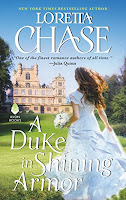
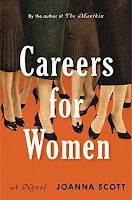
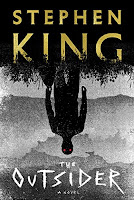
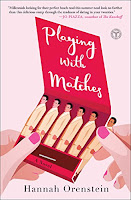

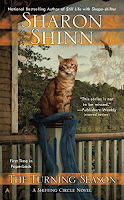
4 comments:
I'm not sure if it's an excuse.... but Christie's books were written in a 'certain time' when xenophobia was rife in the UK and in Middle England in particular. Look at her books such as 'Death On The Nile' and she accurately portrays the casual racism which was, I suspect, prevalent at the time.
Christie did well to develop such an engaging character in Hercule Poirot - but even he had to be Belgian, rather than French, and the abuse he receives is because of the assumption that he's French!
I enjoyed your review - I must have read all of Agatha Christie's catalogue - but probably 25 years ago!
Hey Leo! I do know what you mean, and I'm usually able to take Christie's books as simply reflecting the time in which they were written. In most books she'll present these attitudes, but won't endorse them (e.g. she'll make the characters who spout offensive views not particularly sympathetic). This just felt like something else. It might be simply because it's an early book in her career, her own views might have evolved with time.
I, too, read all of Christie's for the first time a long, long time ago. I'm now rereading the ones I remember liking, but clearly my memory was faulty with this one!
Oh my. I'm so glad you gave us the heads-up on this. I have fond memories of reading Ms. Christie's books 20-50 years ago, especially the Miss Marple books -- the older I get, the smarter Miss Marple gets -- but sometimes fond memories are best.
I've been nervous about revisiting Ngaio Marsh's mysteries for the same reason.
Well, I can be your warning signal :-) There have been a couple that were absolutely fine, and my library does have a few of Marsh's as well, so I'm planning to listen to some of those as well.
Post a Comment